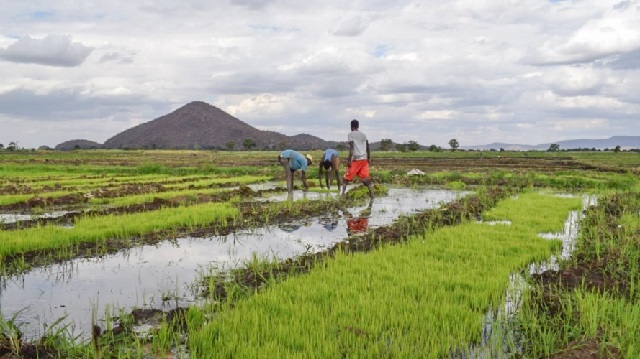As the world grapples with the increasing effects of climate change related disasters, human activities play a crucial role in escalating these impacts. Despite widespread awareness and calls for action, Uganda remains one of the countries heavily striked by human induced climate change disasters ranging from deforestation to relentless carbon emissions
The Climate Change 2023 from the Synthesis Report states that humans are responsible for all global heating over the past 200 years leading to a current temperature rise of 1.1°C above pre-industrial levels, which has led to more frequent and hazardous weather events that have caused increasing destruction to people and the planet.
Due to climate change the seasons have changed, with the rainy season becoming more variable in length and droughts more ubiquitous, especially in eastern and northeastern Uganda. Climate trends have the potential to affect development of Uganda, due to the vulnerability of Uganda’s diverse environment.
Forests act as crucial carbon sinks, absorbing CO2 from the atmosphere and mitigating climate change. However, rampant deforestation, driven by agriculture, logging, and urbanization, diminishes the planet’s capacity to sequester carbon.
The loss of biodiversity and disruption of ecosystems further compound rising global temperatures which fuel more frequent and intense heatwaves, storms, floods, and wildfires, resulting in loss of life, destruction of infrastructure, and disruption of ecosystems.
In addition rapid urbanization and infrastructure expansion lead to increased energy consumption, land degradation, and habitat loss. The proliferation of concrete jungles exacerbates the urban heat island effect, elevating temperatures in cities and exacerbating heat-related health risks
The burning of fossil fuels for energy, industrial processes, and transportation remains the largest contributor to greenhouse gas emissions. Despite efforts to transition to renewable energy sources, global carbon emissions continue to rise, primarily due to economic growth in developing countries and the absence of comprehensive international agreements.
To mitigate these impacts of greenhouse gas emissions is possible, through transitioning to cleaner and renewable energy sources. Uganda is endowed with abundant renewable energy sources such as solar wind, hydro and geothermal power.
The issue of the climate change effects requires a broad collaboration of governments, investors, companies and everyone else who is genuinely committed to reducing emissions and mitigate climate change impacts. That effort requires the oil and gas industry to be firmly and fully on board.
Human activities continue to trigger climate change impacts, posing a grave threat to ecosystems, economies, and human well-being. Therefore, eembracing these clean and sustainable alternatives will provide a Viable Pathway to Meet Our Energy Needs without Polluting the Environment.
nabulojoy256@gmail.com
Do you have a story in your community or an opinion to share with us: Email us at Submit an Article









